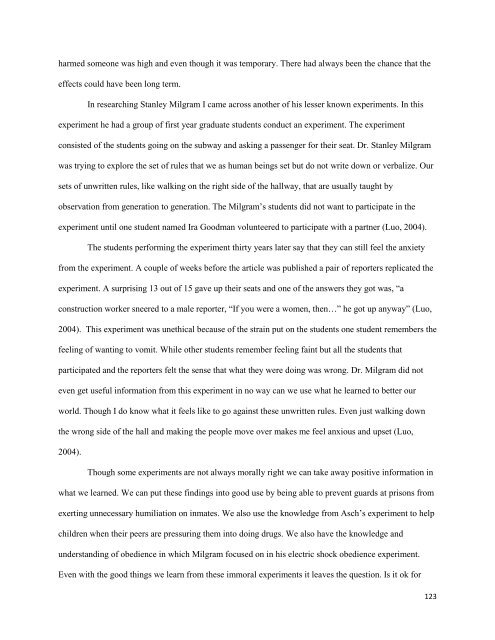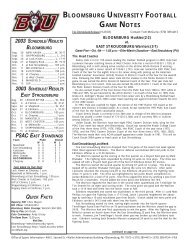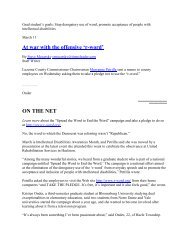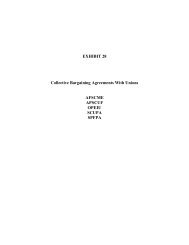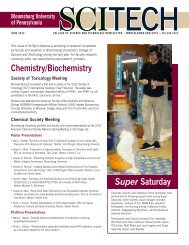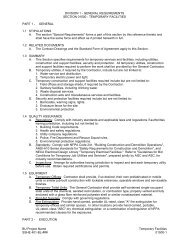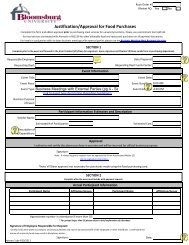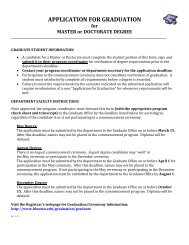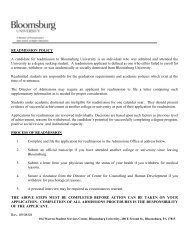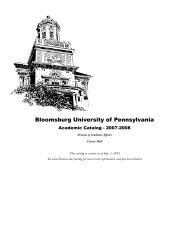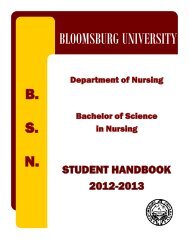Human Rights at Home and Abroad: Past, Present, and Future
Human Rights at Home and Abroad: Past, Present, and Future
Human Rights at Home and Abroad: Past, Present, and Future
You also want an ePaper? Increase the reach of your titles
YUMPU automatically turns print PDFs into web optimized ePapers that Google loves.
harmed someone was high <strong>and</strong> even though it was temporary. There had always been the chance th<strong>at</strong> the<br />
effects could have been long term.<br />
In researching Stanley Milgram I came across another of his lesser known experiments. In this<br />
experiment he had a group of first year gradu<strong>at</strong>e students conduct an experiment. The experiment<br />
consisted of the students going on the subway <strong>and</strong> asking a passenger for their se<strong>at</strong>. Dr. Stanley Milgram<br />
was trying to explore the set of rules th<strong>at</strong> we as human beings set but do not write down or verbalize. Our<br />
sets of unwritten rules, like walking on the right side of the hallway, th<strong>at</strong> are usually taught by<br />
observ<strong>at</strong>ion from gener<strong>at</strong>ion to gener<strong>at</strong>ion. The Milgram‘s students did not want to particip<strong>at</strong>e in the<br />
experiment until one student named Ira Goodman volunteered to particip<strong>at</strong>e with a partner (Luo, 2004).<br />
The students performing the experiment thirty years l<strong>at</strong>er say th<strong>at</strong> they can still feel the anxiety<br />
from the experiment. A couple of weeks before the article was published a pair of reporters replic<strong>at</strong>ed the<br />
experiment. A surprising 13 out of 15 gave up their se<strong>at</strong>s <strong>and</strong> one of the answers they got was, ―a<br />
construction worker sneered to a male reporter, ―If you were a women, then…‖ he got up anyway‖ (Luo,<br />
2004). This experiment was unethical because of the strain put on the students one student remembers the<br />
feeling of wanting to vomit. While other students remember feeling faint but all the students th<strong>at</strong><br />
particip<strong>at</strong>ed <strong>and</strong> the reporters felt the sense th<strong>at</strong> wh<strong>at</strong> they were doing was wrong. Dr. Milgram did not<br />
even get useful inform<strong>at</strong>ion from this experiment in no way can we use wh<strong>at</strong> he learned to better our<br />
world. Though I do know wh<strong>at</strong> it feels like to go against these unwritten rules. Even just walking down<br />
the wrong side of the hall <strong>and</strong> making the people move over makes me feel anxious <strong>and</strong> upset (Luo,<br />
2004).<br />
Though some experiments are not always morally right we can take away positive inform<strong>at</strong>ion in<br />
wh<strong>at</strong> we learned. We can put these findings into good use by being able to prevent guards <strong>at</strong> prisons from<br />
exerting unnecessary humili<strong>at</strong>ion on inm<strong>at</strong>es. We also use the knowledge from Asch‘s experiment to help<br />
children when their peers are pressuring them into doing drugs. We also have the knowledge <strong>and</strong><br />
underst<strong>and</strong>ing of obedience in which Milgram focused on in his electric shock obedience experiment.<br />
Even with the good things we learn from these immoral experiments it leaves the question. Is it ok for<br />
123


